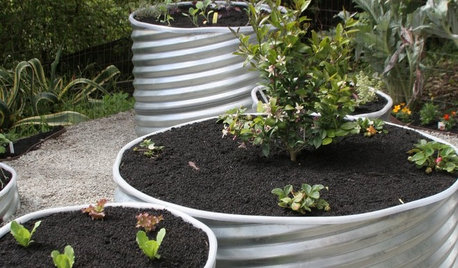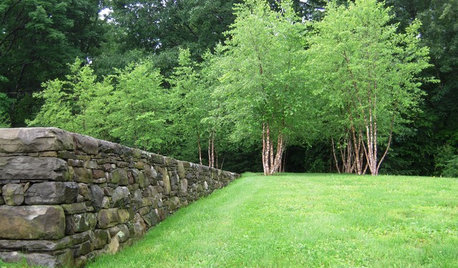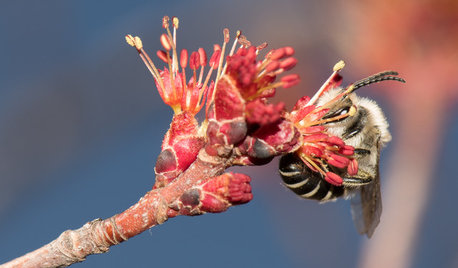What to do with old potting soil?
gbuggy
16 years ago
Related Stories

GARDENING GUIDESHow to Pick a Mulch — and Why Your Soil Wants It
There's more to topdressing than shredded wood. Learn about mulch types, costs and design considerations here
Full Story
GARDENING GUIDESHow to Stop Worrying and Start Loving Clay Soil
Clay has many more benefits than you might imagine
Full Story
GARDENING GUIDESThe Poop Scoop: Enrich Your Soil With Good Old Manure
Get over the ick factor already — this natural super-ingredient for soil has so many benefits, you'll wonder why you ever went chemical
Full Story
CONTAINER GARDENSContainer Gardening Basics: The Dirt on Soil
Learn the types of potting soil available and the best mixes to help your containers thrive
Full Story
GARDENING GUIDESGrow a Beautiful Garden in Alkaline Soil
Got alkaline soil? Learn how to manage it and the many beautiful plants that will thrive in this ‘sweet’ soil
Full Story
FARM YOUR YARDHow to Get Good Soil for Your Edible Garden
The nutrients in your soil feed the plants that feed you. Here are tips on getting it right — just in time for planting season
Full Story
GARDENING GUIDESGardening Solutions for Heavy Clay Soils
What’s a gardener to do with soil that’s easily compacted and has poor drainage? Find out here
Full Story
GARDENING GUIDESGet the Dirt on Your Garden’s Soil
Understand how your soil supports your plants so you can ensure your garden’s success
Full Story
LANDSCAPE DESIGNFlood-Tolerant Native Trees for Soggy Soil
Swampy sites, floodplains, even standing water ... if you've got a soggy landscape, these trees are for you
Full Story
GARDENING GUIDESInvite Cellophane Bees to Your Garden by Providing Patches of Bare Soil
Look for cellophane bees (Colletes) pollinating flowering trees and shrubs in U.S. gardens this spring
Full Story







webkat5
gbuggyOriginal Author
Related Professionals
Bridgetown Landscape Architects & Landscape Designers · Ballenger Creek Landscape Architects & Landscape Designers · Mountain Brook Landscape Architects & Landscape Designers · Belvedere Park Landscape Contractors · Lake Worth Landscape Contractors · Lehigh Acres Landscape Contractors · Mesa Landscape Contractors · Pahrump Landscape Contractors · The Villages Landscape Contractors · Waterford Landscape Contractors · Oxon Hill Landscape Contractors · Winter Gardens Landscape Contractors · Caledonia Interior Designers & Decorators · Chantilly Handyman · Fairfax Handymanbirdsnblooms
greenman28 NorCal 7b/8a
tapla (mid-Michigan, USDA z5b-6a)
karen715